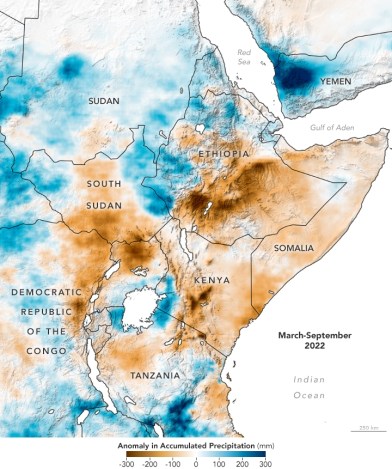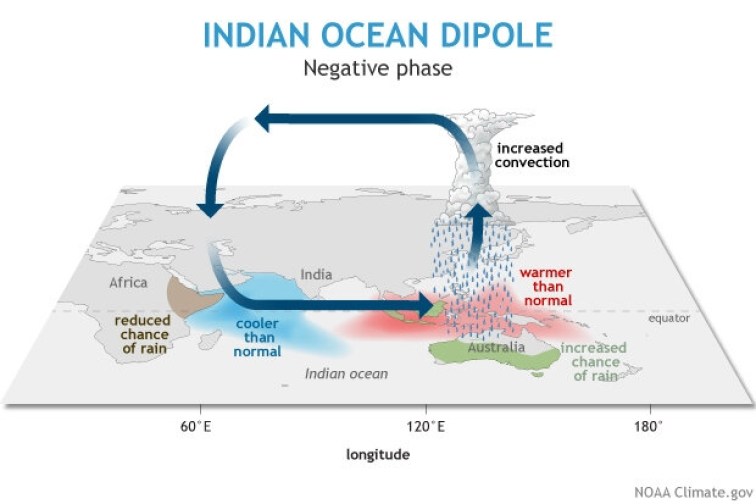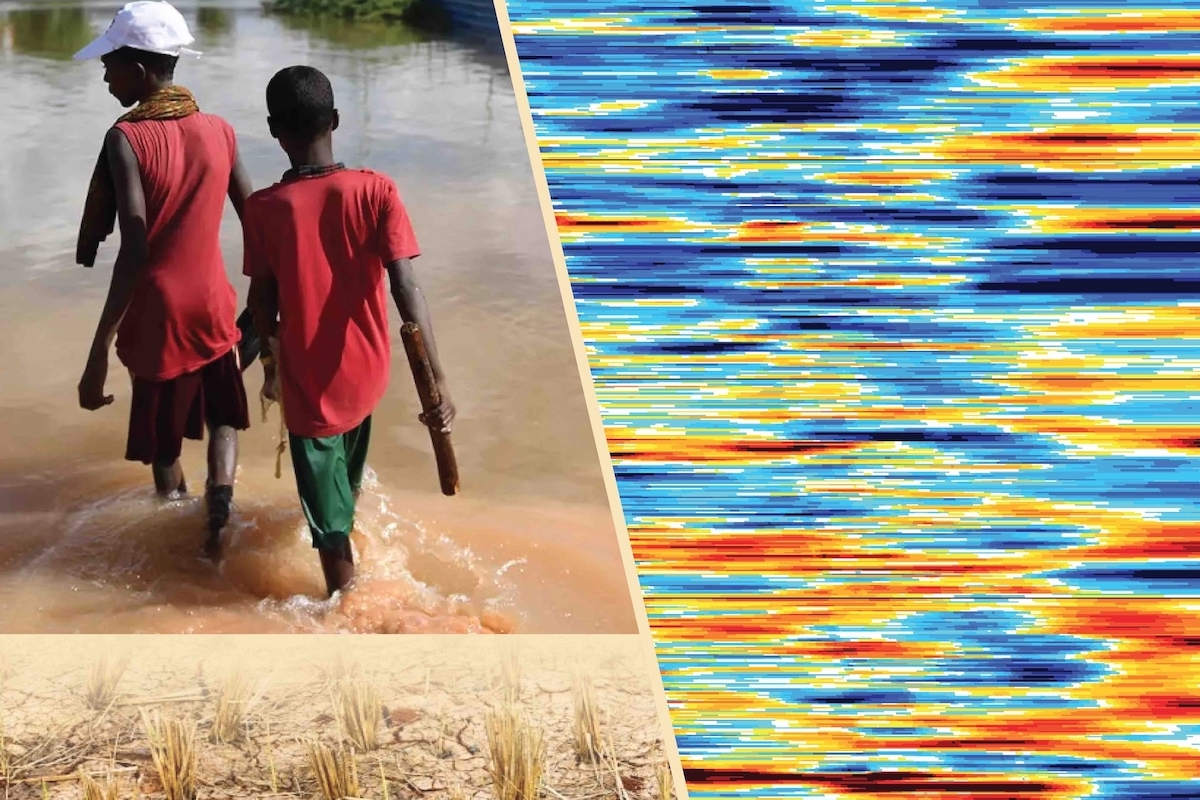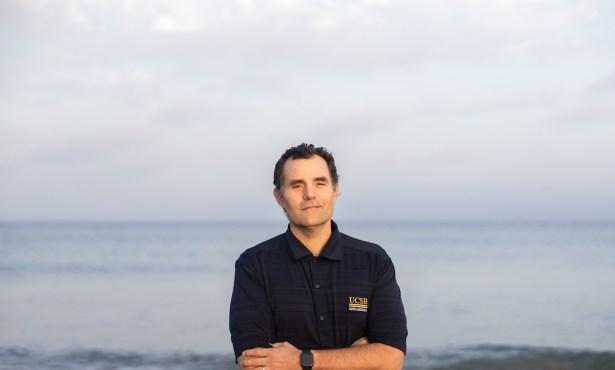This article originally appeared in UCSB’s ‘The Current.’
In Africa, climate change impacts are experienced as extreme events like drought and floods. Through the Famine Early Warning Systems Network (which leverages expertise from USG science agencies, universities, and the private sector) and the IGAD Climate Prediction and Applications Center, it has been possible to predict and monitor these climatic events, providing early warning of their impacts on agriculture to support humanitarian and resilience programming in the most food insecure countries of the world.
Science is beginning to catch up with and even get ahead of climate change. In a commentary for the journal Earth’s Future, UC Santa Barbara climate scientist Chris Funk and co-authors assert that predicting the droughts that cause severe food insecurity in the Eastern Horn of Africa (Kenya, Somalia and Ethiopia) is now possible, with months-long lead times that allow for measures to be taken that can help millions of the region’s farmers and pastoralists prepare for and adapt to the lean seasons.
“We’ve gotten very good at making these predictions,” said Funk, who directs UCSB’s Climate Hazards Center, a multidisciplinary alliance of scientists who work to predict droughts and food shortages in vulnerable areas.

In the summer of 2020, the CHC predicted that climate change, interacting with naturally occurring La Niña events, would bring devastating sequential drought to the Eastern Horn of Africa. The region normally has two wet seasons a year — spring and fall. An unprecedented five rainy seasons in a row failed. Eight months before each of those failures, the CHC anticipated droughts. Fortunately, agencies and other collaborators paid heed to those early warnings and were able to take effective actions, Funk said. Within the U.S. Agency for International Development (USAID), the forecasts helped motivate hundreds of millions of dollars in assistance for millions of starving people
These efforts were a far cry from similar predictions of sequential droughts that the researchers, collaborating with the USAID-supported Famine Early Warning Systems Network, made for the same region ten years earlier. Predictions that went largely unheeded. “More than 250,000 Somalis died,” Funk said. “It was just really horrible.”
At the time, he said, the available forecasts weren’t able to predict rainfall deficits in this region. While the models said East Africa would become wetter, observations showed substantial declines in the spring wet season. And to be fair, he added, the group’s long-range weather prediction capabilities were still in their infancy. “We made an accurate forecast, but we didn’t understand very well what was going on scientifically,” Funk said. “Now, following our success in 2016/17, and extensive outreach efforts, the humanitarian relief community appreciates the value of our early warning systems.”
In the intervening 10 years, the researchers have worked to discern and understand the broad, often distant mechanisms that drive drought in the Eastern Horn of Africa and create accurate, tailored forecasts for the region. They built on research showing that increased rainfall around Indonesia, caused by anthropogenic increases in sea surface temperatures, resulted in less moisture flowing on to the East African coast during the rainy months. These changes in moisture flows drive back-to-back droughts. But as climate change increases western Pacific sea surface temperatures, it becomes more and more possible to predict devastating water shortages.

“We’ve published about 15 scientific papers on this topic,” Funk said, “and we’ve forecasted dry seasons in 2016-2017, which helped prevent a famine that year.” As he discusses in his book “Drought, Flood, Fire (Cambridge University Press, 2021),” “climate change amplifies natural sea surface temperature variations, which opens the door to better forecasts.”
In the new commentary and a longer paper currently at preprint stage, also coming out in Earth’s Future, the co-authors highlight, respectively, the opportunities associated with these long range outlooks, and the physical mechanisms explaining the predictability.
“To reduce the impacts of climate extremes, we need to look for opportunities,” said CHC Specialist and Operations Analyst Laura Harrison. “We need to pay attention to not just how climate is changing, but how these changes can support more effective predictions for droughts and for advantageous cropping conditions. As a community, we also need to foster communication about successful resilience strategies.”
With climate models that can predict extreme ocean states at eight-month lead times, and weather forecasts that can make projections at two weeks and at 45 days, CHC scientists and researchers now can provide actionable information to collaborators on the ground to help local farmers anticipate and plan for dry conditions.
“We’re working with this group called Plant Village, who is providing agricultural advisories to millions of Kenyans, and helping them take actions that can help make their crops more drought-resistant,” Funk said.
This proactivity is something Funk and collaborators hope will become a bigger part of climate change strategy for the Eastern Horn of Africa, as their models predict more of these drought-forming conditions in the region’s future. A better local understanding of the mechanisms that result in droughts, and investments in early warning systems and adaptation measures, may initially be costly, they said, “but are relatively inexpensive when compared to post-impact, response-based alternatives such as humanitarian assistance and/or funding safety-net programs.”
Education and participation can build trust and ultimately increase resilience. The CHC is building on what they learned in East Africa, and using it to feed partnerships in other parts of the world. In southern Africa, for example, they are collaborating with the Zimbabwe Meteorological Services Department and the Knowledge Impact Network to support the development of actionable climate services.
“Understanding that climate change makes extremes more frequent is really empowering because now we can try to anticipate those bad effects,” Funk said. “Flooding still happens, drought still happens, people still get hurt, but we can try to reduce the harm.”

 on Google
on Google 



You must be logged in to post a comment.